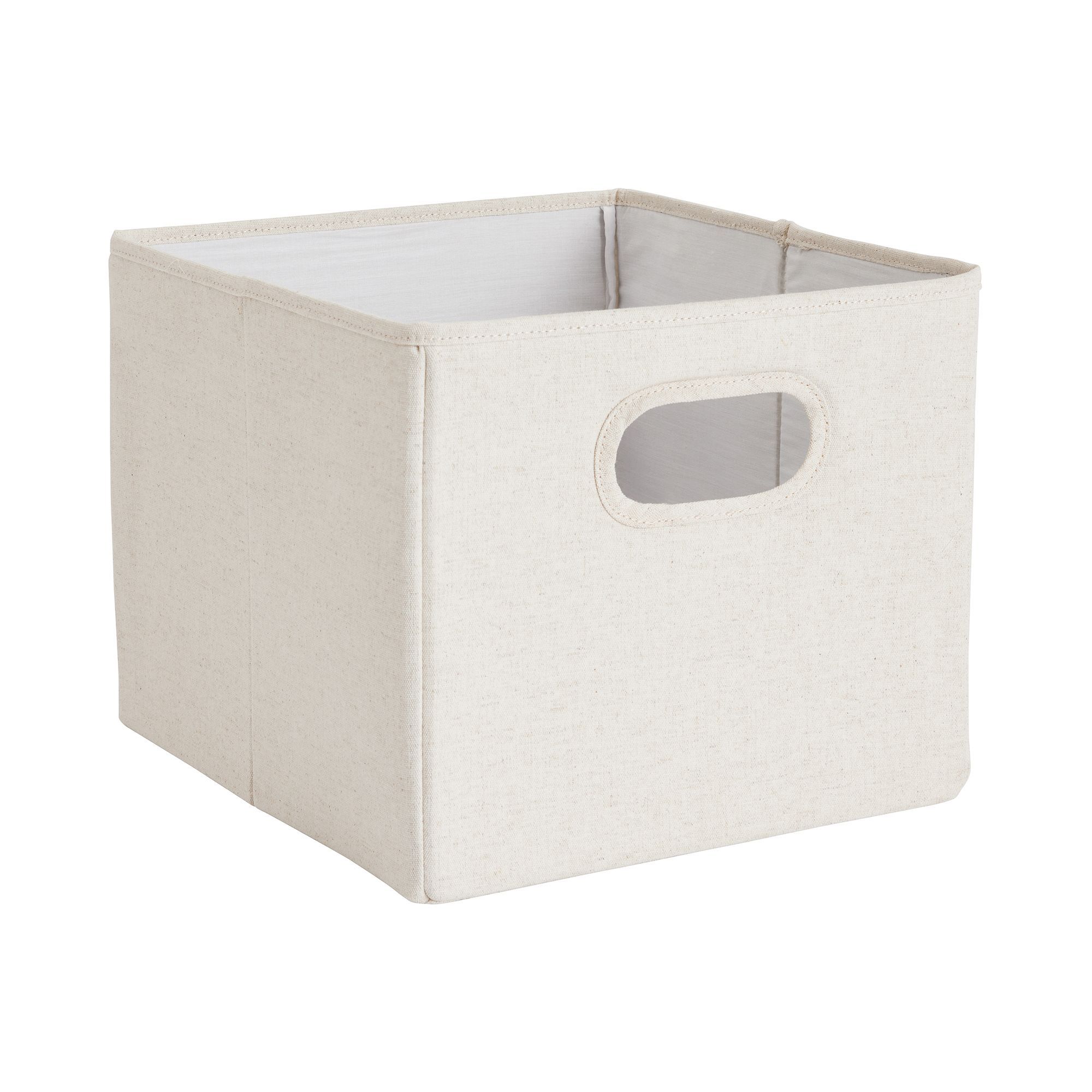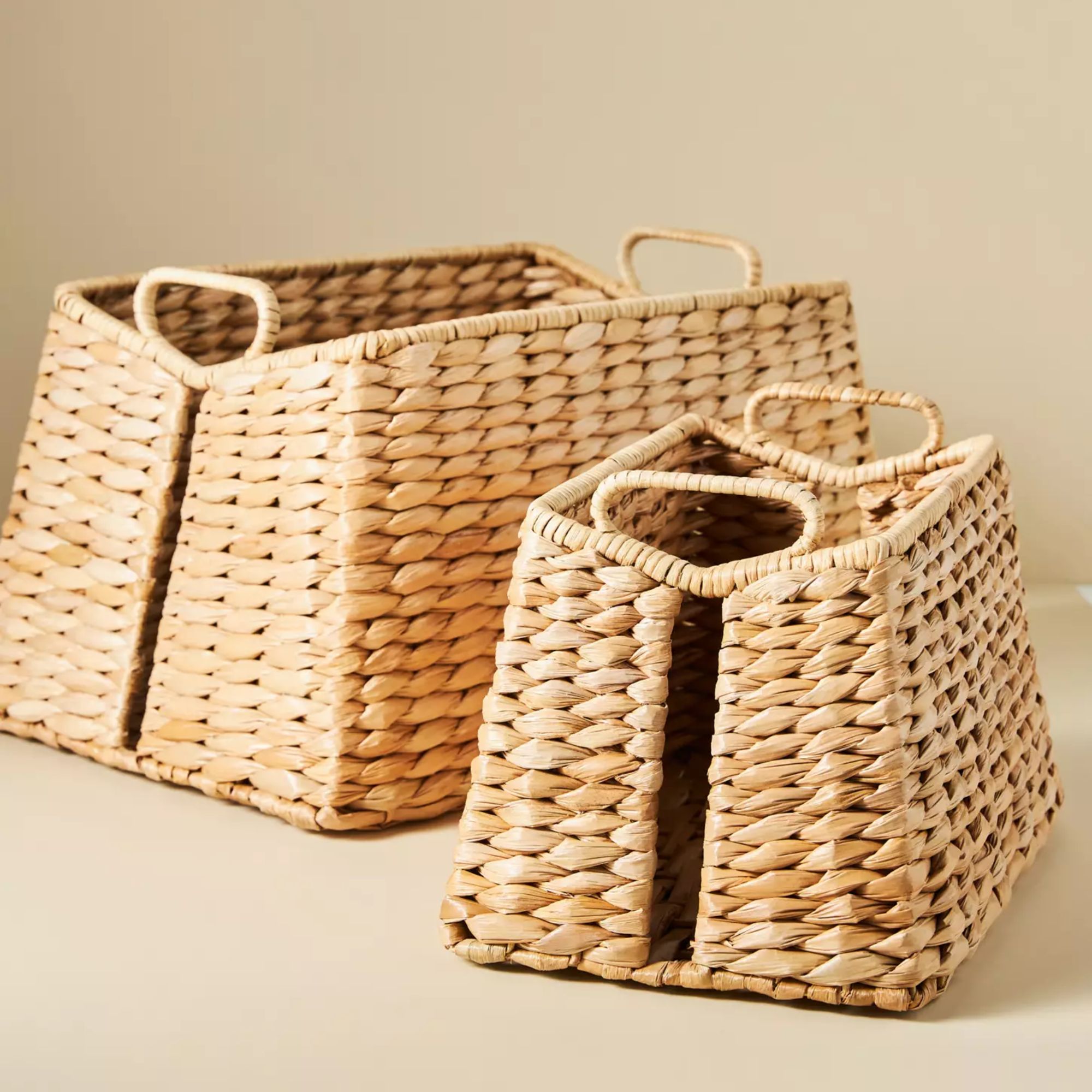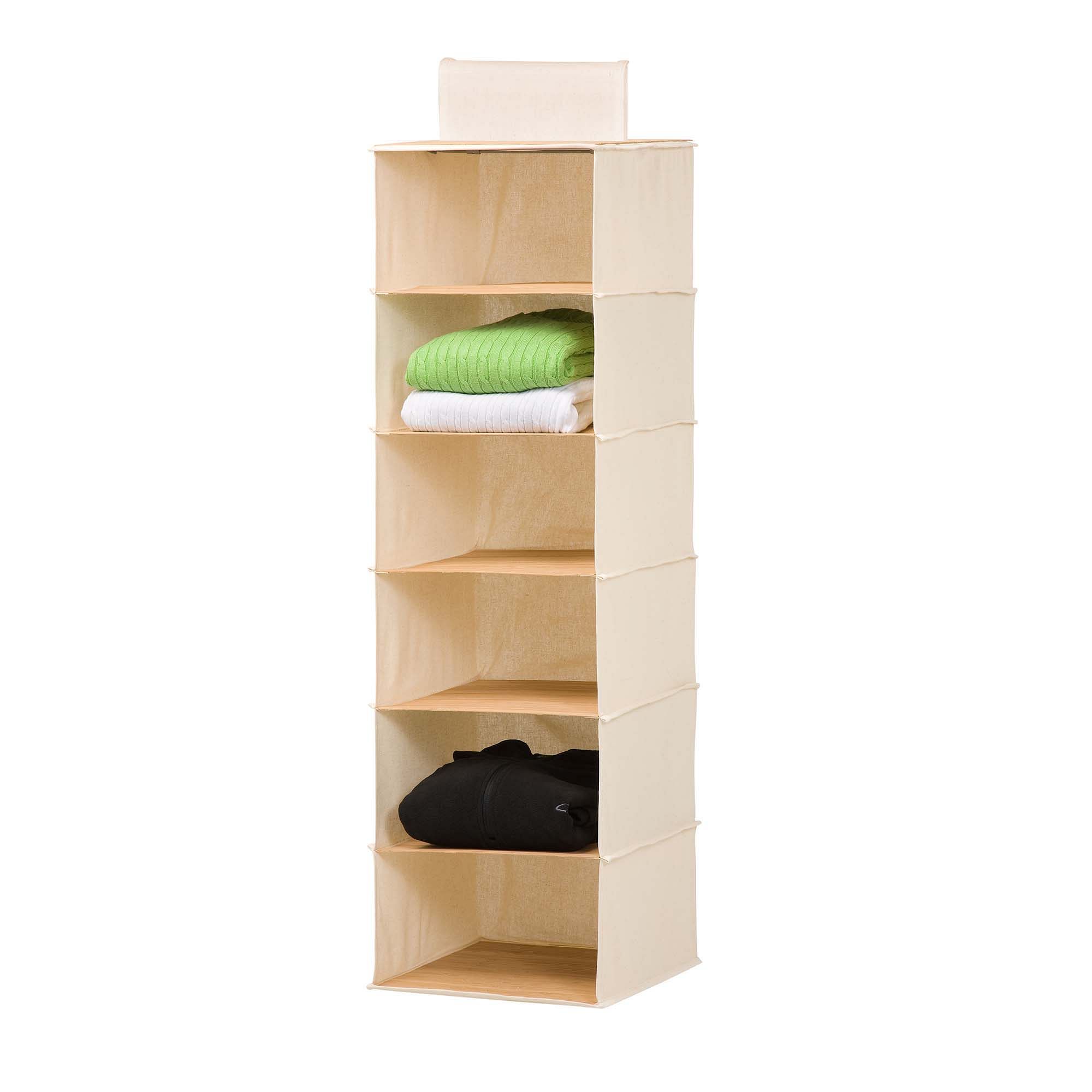This is how to store towels and linens to keep them soft and fresh for longer
How you store your towels and linens can make a big difference to whether they stay fresh and soft or stiffen and need replacing sooner

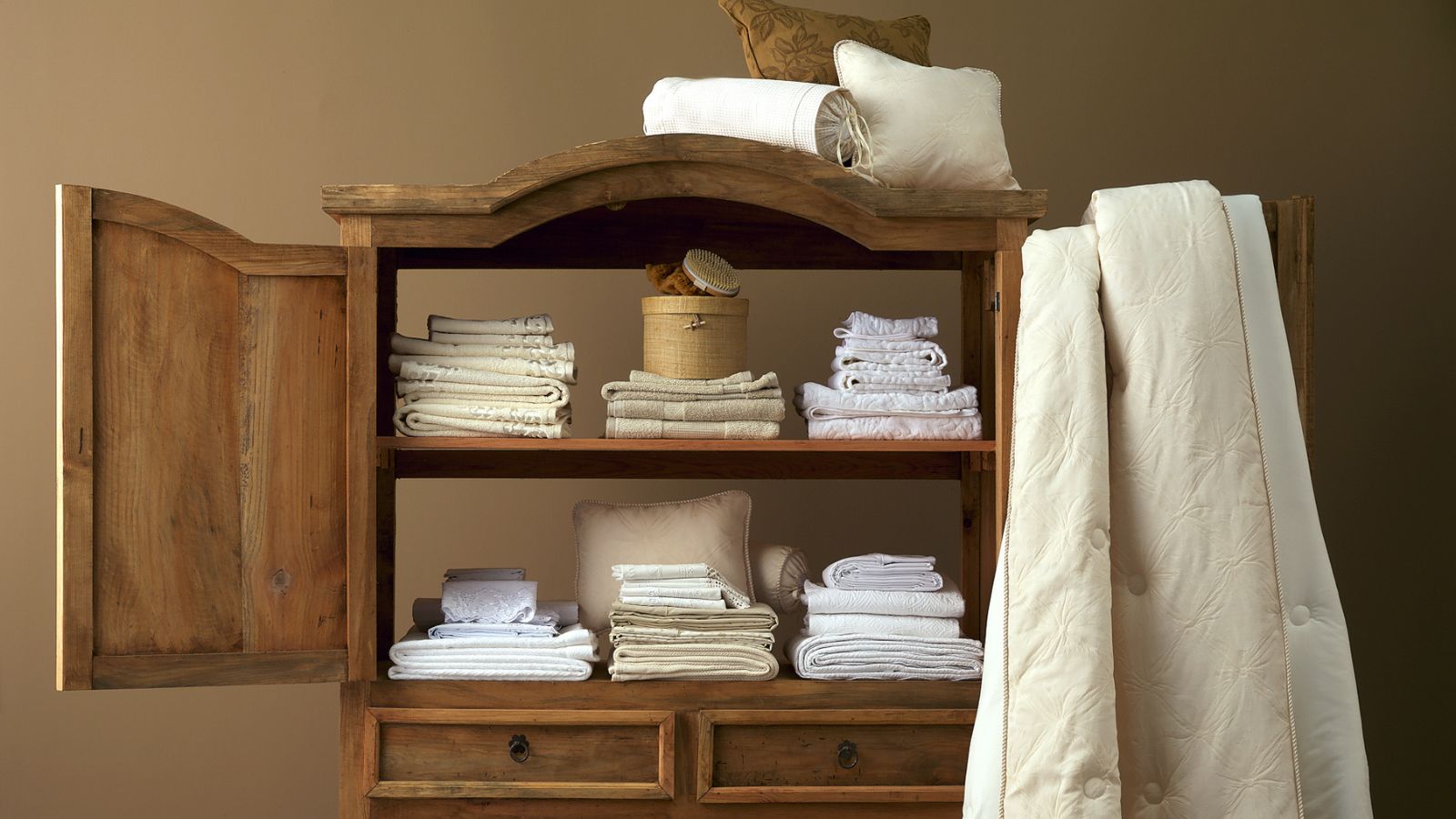
There's nothing more relaxing than wrapping up in a fluffy towel or sliding between soft, smooth sheets. However, you may have noticed that when you store towels and linens and use them again, they feel stiff and smell musty, which can undermine an otherwise relaxing bath or shower or the comfort of your bedding.
The issue may not be how you wash towels and linens, or even the products you use, but rather your storage methods. In fact, the way you store these items can make a huge difference to how long they stay soft and fresh.
Below, we've explained the dos and don'ts of storage, ensuring your towels and linens stay soft and comfortable at all times.
How to store towels and linens to keep them soft
'First, let's talk about why linens lose their softness. It mainly comes down to moisture,' explains Houna Bech, interior designer and founder of With Houna.
'When damp towels or sheets are folded and packed away, the moisture has nowhere to go,' Houna explains. 'Trapped dampness allows mold and mildew to grow, which damages fabric fibers and causes stiffness.'
'Heat and humidity also relax fibers and compress linens, reducing fluffiness. So storage areas like steamy bathrooms or windowless closets are a no-go. Proper airflow and ventilation are key to keeping linens fresh and soft.'
Here are the top tips for keeping towels and linens soft and luxurious:
Design expertise in your inbox – from inspiring decorating ideas and beautiful celebrity homes to practical gardening advice and shopping round-ups.
1. Wash and dry your towels and linens properly
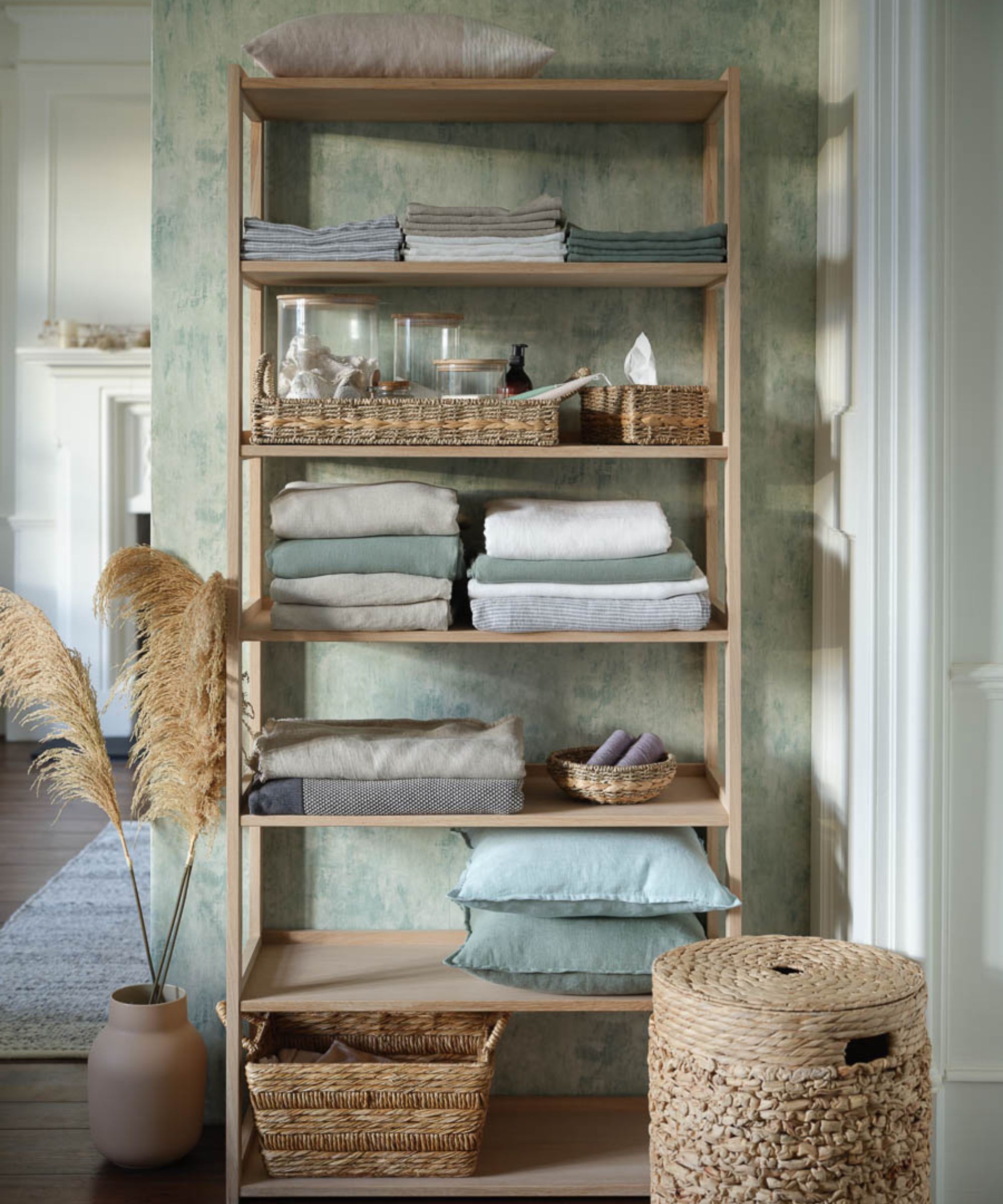
To keep your towels and linens soft, it is important to wash and dry them properly. To do this, you must be careful to use the right amount of detergent and avoid fabric softeners, which can leave a residue that makes the fibers stiff.
'It's recommended to use warm water instead of hot water as heat can damage the fibers,' explains Rocky Vuong, founder and director of Calibre Cleaning. After washing, make sure to dry them on a low heat setting or hang them out to air dry.
Ensure towels and linens are completely dry before storing. Any moisture can lead to mildew which can also damage the fabric, reducing its softness. However, be careful not to over-dry towels and linens in the dryer, since this can damage fibers and make them feel stiff. As a rule of thumb, it's preferable to line-dry your laundry. However, if you opt to use a dryer, use the lowest heat setting and remove items while they are slightly damp to air dry completely.
2. Fold them neatly
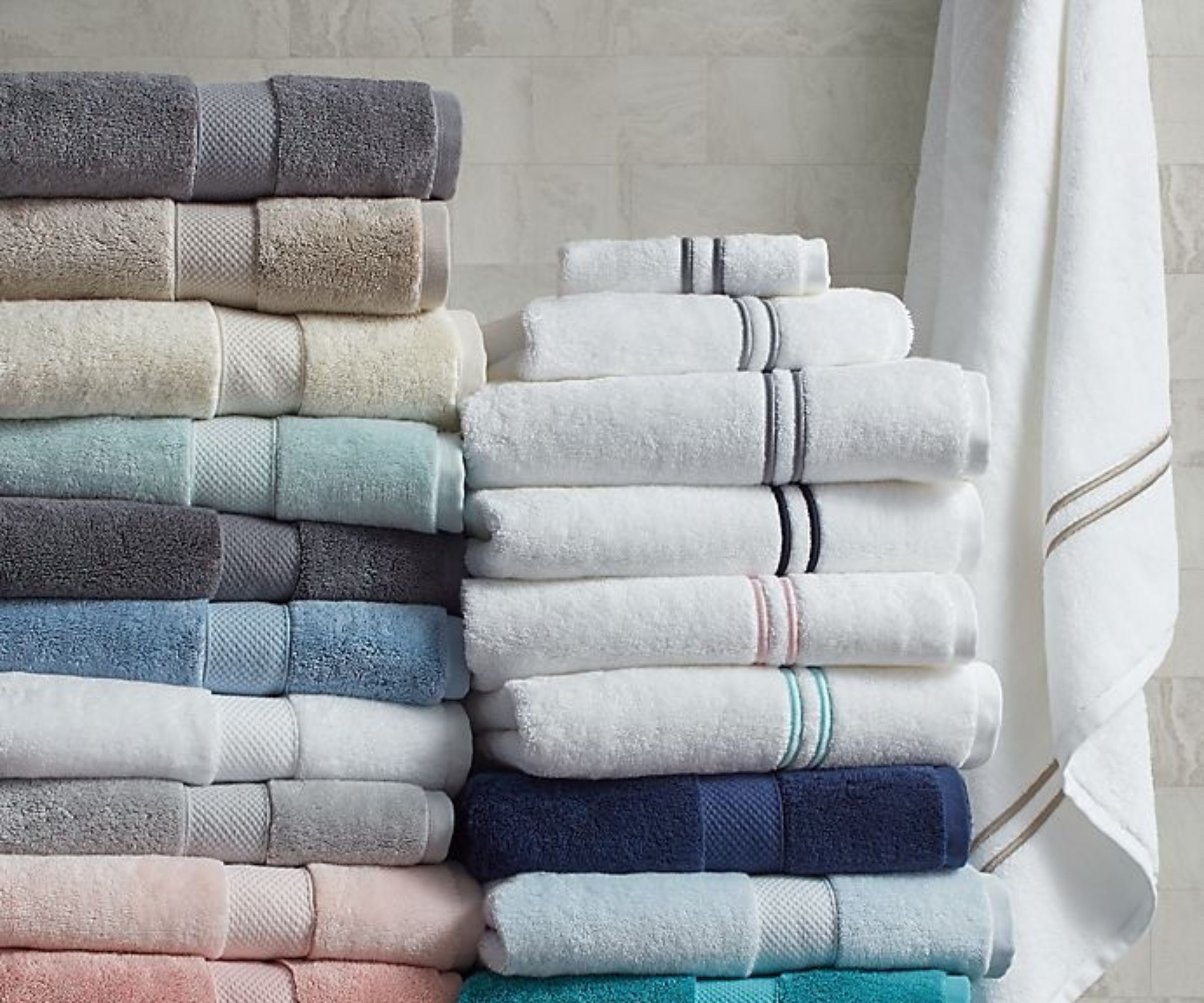
Fold towels and linens neatly to avoid creases that can contribute to stiffness over time, but not too tightly, since this can restrict airflow.
Rocky Vuong says: 'I recommend the trifold method as the ideal way to keep towels and linens soft. Unlike storing them in tight rolls – which may be visually appealing but compresses the fibers, reducing their softness – the tri-fold method preserves their plushness.'
3. Don't compress them
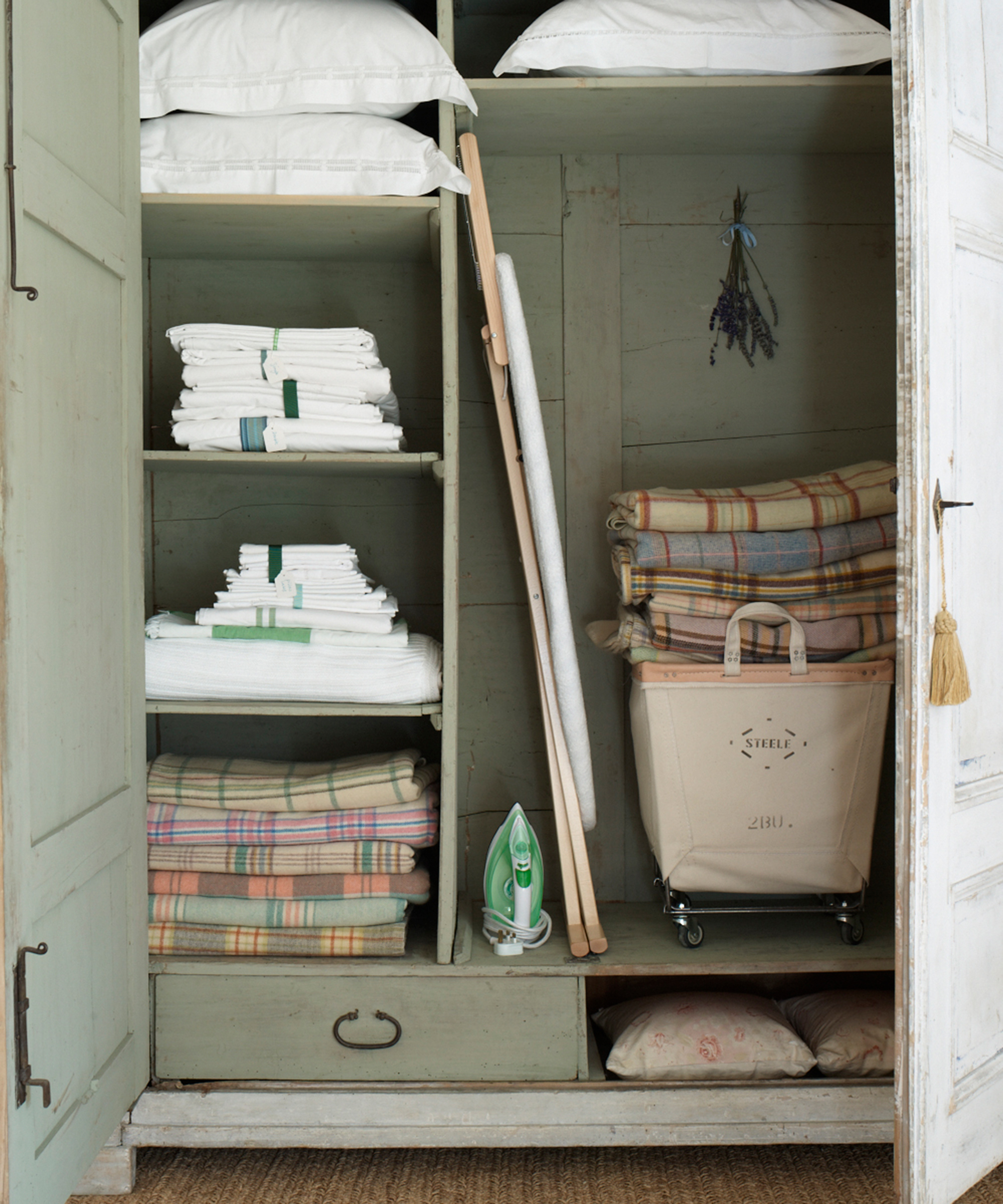
Overloading shelves or baskets can compress linens, so make sure there's enough space for airflow.
'Just as loose rolls keep things fluffy, especially big bath towels, keeping these stored loosely by avoiding cramming them onto shelves will ensure they remain soft,' says Rocky Vuong. Too much pressure on the folds can cause the fabric to weaken at those points over time. So instead, stack them in a way that allows for air circulation to prevent mustiness.
4. Store them in aerated storage containers
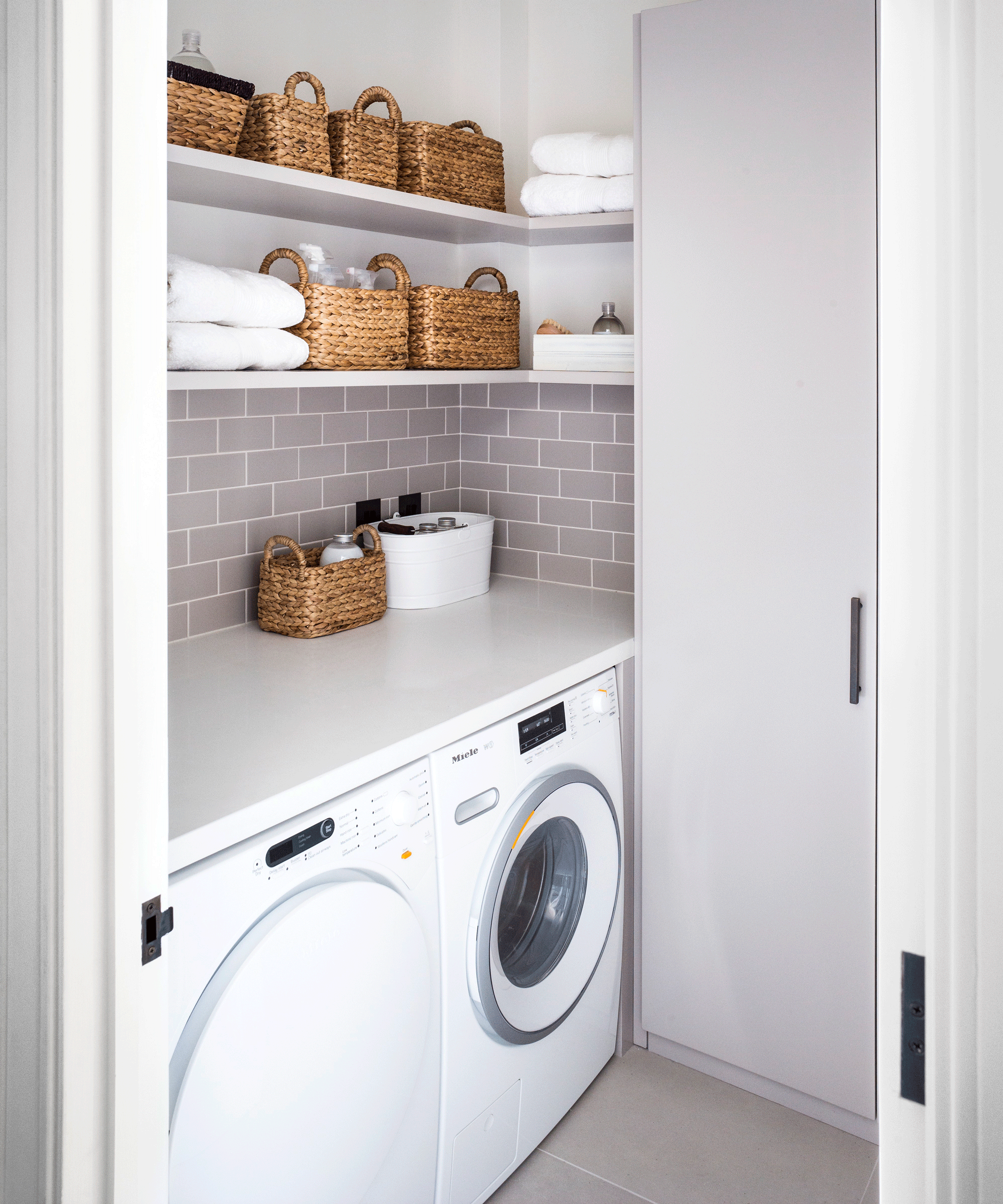
While it may be tempting to store your towels and linens in plastic bags
for protection, plastics don't let out moisture, which can lead your linens or towels to become musty or develop mildew over time.
Instead, opt for breathable storage solutions such as cotton or linen bins or baskets made from cedar or seagrass.
5. Find the right location
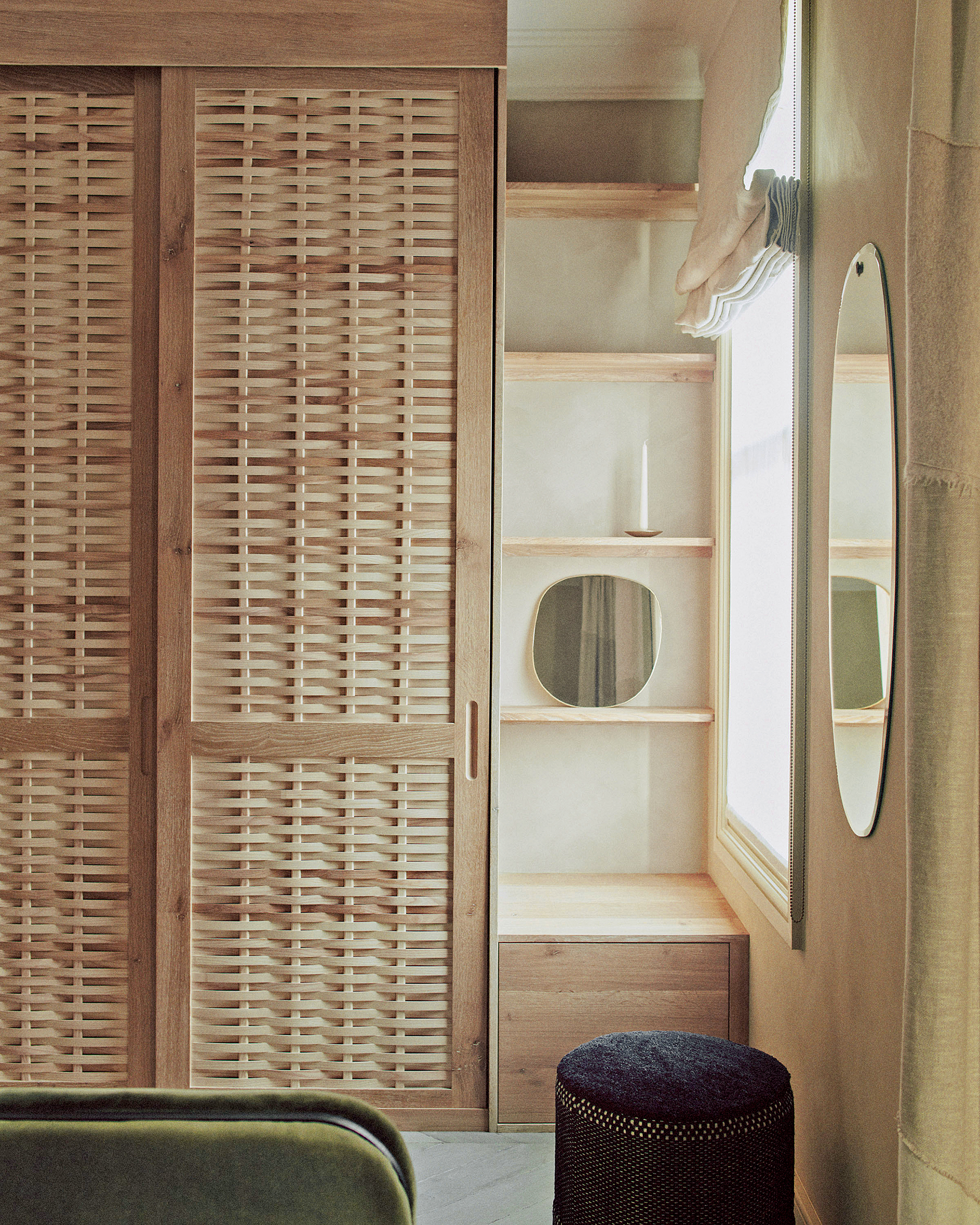
The best places to store linens and towels are anywhere that remains cool, dry, and away from direct sunlight, which can fade colors and weaken fibers. Linen or laundry closets, or other breathable cabinets away from damp and humid areas of the home, are usually the best places.
'With some creativity, you can design a linen storage space that is both functional and spa-inspired,' says Houna Bech. Try the following ideas:
- Consider baskets or shelves in a guest room closet.
- Store linens in under-bed bins with mesh panels.
- Keep them neatly folded in a vintage trunk or armoire.
- Take inspiration from how Nate Berkus refreshes his linen closet and label your stored sheets and blankets.
- Use hanging rods with linen bags to add flair.
- Repurposed or thrifted ladders work beautifully as towel holders.
- For a dry basement area or spare room, try an open shelving unit.
As a final touch to keep your towels and linens smelling fresh, add natural scents like lavender, rose petals, lemongrass, cedar, or another fragrant herb or essential oil. These botanicals naturally repel moths and moisture while making your linens and towels smell amazing. You could even make your own DIY linen spray.

Lola Houlton is a news writer for Homes & Gardens. She has been writing content for Future PLC for the past six years, in particular Homes & Gardens, Real Homes and GardeningEtc. She writes on a broad range of subjects, including practical household advice, recipe articles, and product reviews, working closely with experts in their fields to cover everything from heating to home organization through to house plants. Lola is a graduate, who completed her degree in Psychology at the University of Sussex. She has also spent some time working at the BBC.
